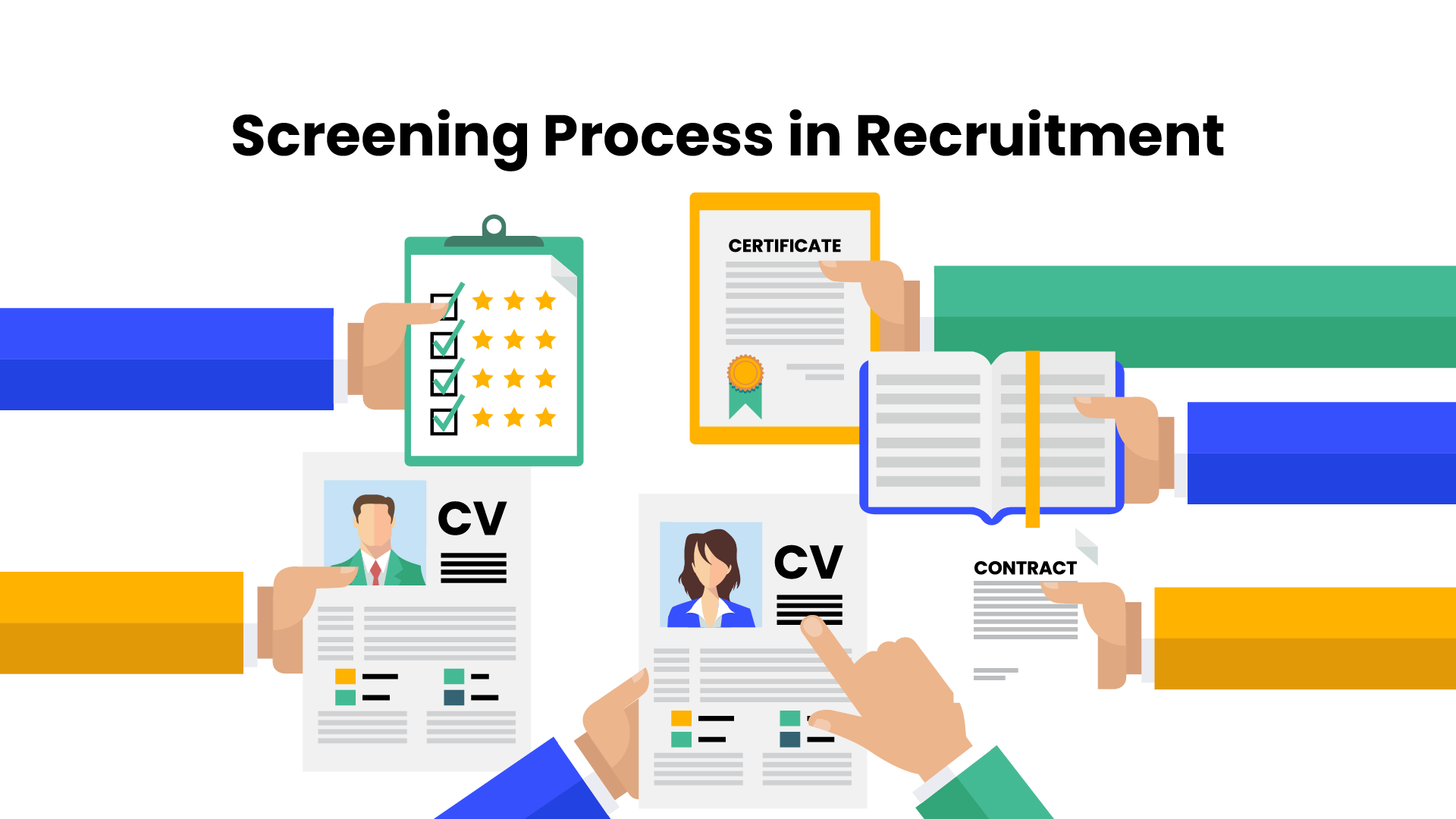
Learn the five most common screening methods, why they matter, and how the right tools help teams hire faster with clearer decisions.

Beyond resumes and interviews, understanding a candidate at their core is key to uncovering their true potential and fit for the role.
Employers are constantly seeking innovative tools to make recruitment more effective and accurate. One such tool is the personality test for employment, a method that has proven to enhance hiring processes and strengthen workforce management. By understanding an applicant’s traits, behavior, and work style, employers can better assess job fit, improve employee retention, and foster a productive workplace culture.
This article will explore the importance of personality tests for employment and provide a comprehensive list of personality tests to help you streamline your hiring process.
Personality tests are valuable tools in the hiring process, providing insights beyond traditional interviews. Here's why they are crucial for making informed employment decisions:
To help you select the right assessment tool for your hiring needs, we’ve compiled 10 popular personality tests commonly used in the workplace.
The Big Five personality traits (OCEAN) have become a leading model for describing the core elements of personality. It evaluates individuals based on five core dimensions, offering insights into their behaviors, preferences, and potential role fit.
Openness to Experience reflects creativity, curiosity, and receptiveness to new ideas, with high scorers being imaginative and low scorers favoring routine. Conscientiousness measures organization, reliability, and discipline, where highly conscientious individuals are dependable, and lower scorers thrive in flexible environments.
Extraversion assesses sociability and energy, with extroverts excelling in group settings and introverts preferring independent tasks. Agreeableness evaluates compassion and cooperation, as high scorers prioritize harmony, while lower scorers lean toward competitiveness. Lastly, Neuroticism measures emotional stability and stress tolerance, with low scores indicating calmness and high scores reflecting sensitivity to stress.
Benefits:
Limitations:
The DISC assessment is a tool used to understand how people behave and communicate. It sorts individuals into four main personality types.
Dominant (D) people are focused on achieving results and goals. Influential (I) individuals are social butterflies who enjoy persuading others and are generally enthusiastic. Steady (S) personalities are patient, calm, and reliable. Conscientious (C) individuals are detail-oriented, organized, and analytical.
Benefits:
Limitations:
The Myers-Briggs Type Indicator is one of the most popular personality tests available. Created by Katharine Briggs and Isabel Briggs Myers, it's inspired by the work of psychologist Carl Jung. The MBTI sorts people into 16 distinct personality types based on four key differences: how you gain energy (extraversion vs. introversion), how you gather information (sensing vs. intuition), how you make decisions (thinking vs. feeling), and how you approach the outside world (judging vs. perceiving).
Benefits:
Limitations:
The Belbin Team Roles framework identifies nine specific roles individuals can assume in team settings, categorized into thought-oriented, action-oriented, and people-oriented roles. Developed by Meredith Belbin through a study at Henley Management College, this behavioral assessment highlights the strengths and weaknesses of team members to foster balanced and effective collaboration.
The nine roles include: Monitor Evaluator, Specialist, and Plant (thought-oriented roles) for analysis, expertise, and creativity; Shaper, Implementer, and Completer/Finisher (action-oriented roles) for driving tasks forward, ensuring structure, and delivering high-quality results; and Coordinator, Team Worker, and Resource Investigator (people-oriented roles) for fostering collaboration, maintaining harmony, and building external connections.
Benefits:
Limitations:
The Keirsey Temperament Sorter is a personality assessment tool that categorizes individuals into one of four core temperaments: Artisan, Guardian, Idealist, or Rational, with further classification into subcategories. Developed by Dr. David Keirsey, it's been widely used by individuals and organizations to gain insights into personality and behavior.
Benefits:
Limitations:
The PI Behavioral Assessment is a tool used to evaluate workplace behaviors by measuring four key dimensions: Dominance, Extraversion, Patience, and Formality. This assessment helps organizations understand how individuals might interact in a work setting and contribute to a team.
Benefits:
Limitations:
CliftonStrengths is a personality assessment tool developed by Gallup that helps individuals identify their top talent themes or areas of natural strength. It is based on the philosophy that people excel when they focus on developing their strengths rather than fixing their weaknesses. The assessment involves answering a series of questions about one's preferences and tendencies, resulting in a personalized report outlining the individual's unique strengths profile.
Benefits:
Limitations:
The 16 Personality Factor Questionnaire (16PF) is a psychometric assessment developed by Dr. Raymond Cattell in 1949. It evaluates 16 distinct personality traits to predict behavior, workplace performance, and interpersonal interactions. This tool is often used in recruitment to assess team fit, communication styles, and overall compatibility with organizational culture.
Benefits:
Limitations:
The Enneagram categorizes individuals into nine personality types based on their core motivations, fears, and desires. It serves as a tool for personal and interpersonal understanding, making it particularly useful in workplace settings.
Benefits:
Limitations:
The HEXACO Personality Inventory expands upon the Big Five model by introducing a sixth dimension: Honesty-Humility. This dimension assesses traits like integrity, sincerity, and ethical behavior, offering a more comprehensive evaluation of personality.
Benefits:
Limitations:
Personality tests for employment offer a proven, data-driven way to identify the right candidates, foster growth, and enhance team dynamics. By choosing the right test and integrating it thoughtfully into your hiring process, you can build a more productive, satisfied, and aligned workforce.
Start exploring personality assessments to make smarter, more confident hiring decisions and unlock the true potential of your employees. Your team’s success begins with understanding who they are and how they work best.